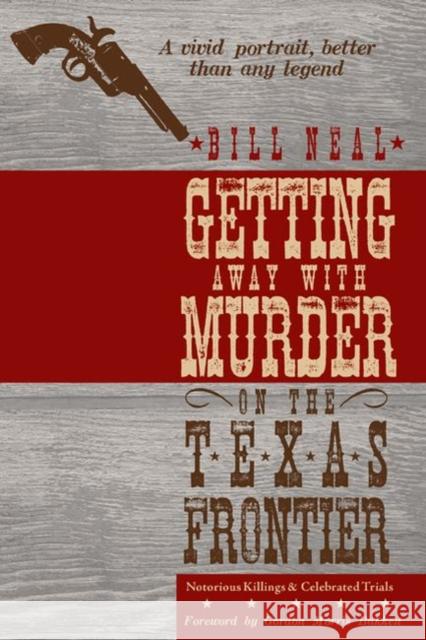Getting Away with Murder on the Texas Frontier: Notorious Killings and Celebrated Trials » książka
Getting Away with Murder on the Texas Frontier: Notorious Killings and Celebrated Trials
ISBN-13: 9780896726512 / Angielski / Miękka / 2009 / 328 str.
In 1916, in the tiny West Texas town of Benjamin, a gunman slips into a courtroom and murders the defendant. In 1912, in Fort Worth s finest hotel, a young man kills an old gentleman in cold blood in the middle of the lobby. The verdict in both of these murderers trials? Not guilty. The explanation? This is Texas. Laws passed by politicians in far-off Austin meant little to Westerners living on the Texas frontier. Sagebrush justice relied less on written statutes than on common sense, grass-roots fairness, and vague notions of folk law drawn from the Old South s Victorian code of chivalry and honor. In this very different time and place, a murderer might go free based on the following reasoning: The son-of-a-gun is guilty all right, but we must turn him loose. He owes me for a pair of boots, and if we convict him I ll never get my money. Inexperienced prosecutors, a lack of modern crime-detection methods, unavailability of witnesses, an acceptance of violence in society, and a laissez-faire attitude toward trial tactics all conspired to make guilty verdicts a rarity. In this first volume of a planned trilogy, Neal presents the evidence that shows how easy some folks found it to evade justice in the frontier West.CONTENTSThe Unlikely Saviors of Thomas J. Fulcher - The 1896 Wichita Falls Bank Robbery - The 1890s Wells Fargo Murder Trials - Pardon Me, Please - More Scandalous Adventures of the Isaacs Family - Murder and Mayhem in the Knox County Courthouse - Strychnine in the Bride s Flour - . . . And the Perpetrator Walked"











